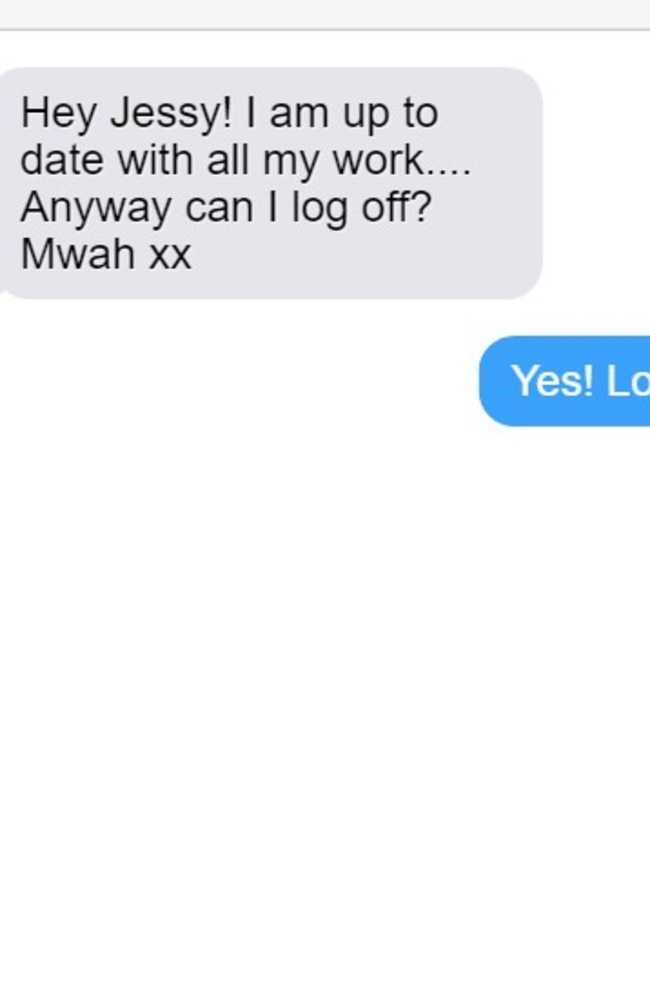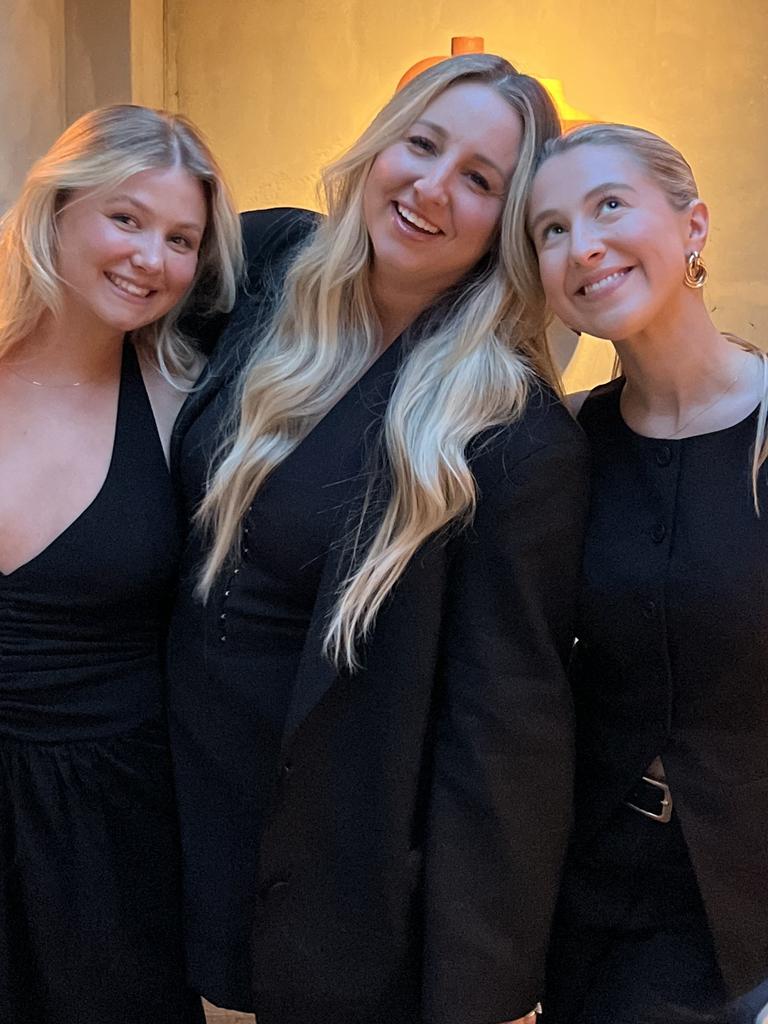Text reveals how much Gen Z have changed work culture
A text message from a Gen Z worker to her boss might shock boomers but according to the boss this is just normal now.
A simple text between a Gen Zer employee and a millennial boss has revealed just how much work expectations have changed.
Jessy Marshall, 35, owns Hive HQ, a public relations business. Her six staff members are Generation Z.
One of her trusted employees recently texted her asking if they could leave early for the day, not because of an emergency or to attend a doctor’s appointment, but because they didn’t see any point in staying.
“Hi Jessy. I am up to date with my work... anyway, can I log off? Mwah,” the worker texted.
“Yes, log off,” Ms Marshall replied.

That communication might seem wild to anyone who worked during the height of hustle culture when staying back at work was seen as a brag and not a cry for help, but Ms Marshall said that is normal in her business, and it isn’t a bad thing.
The 35-year-old said that her Gen Z staff are upfront, set “firm boundaries,” and are conscious of their mental loads.
“They are much better at saying they feel pushed or exhausted or they don’t feel like themselves and need to take time out,” she told news.com.au.
Ms Marshall said the youngest working generation is just more “self-aware” and healthily aren’t prepared to burn themselves out.
“They are good at setting boundaries but they are also very good at making sure they work in their allocated time,” she said.


The business owner said adjusting to this new normal took her a while. When she was in her 20s it was all about burning the candle at both ends. Even now she’s a self-confessed “workaholic.”
What she’s learned, though, is that Gen Z asking to go home early because they’ve completed their work isn’t a sign of laziness or audacity. They are just here to work smarter, not harder, which is good for her business and the office culture.
“On Fridays, I say to the girls, once your work is done, log off. Where we can we log off early, particularly on Fridays, so they can give themselves an extra-long weekend,” she said.
Technically, she’s losing time with her employees, and they are putting in fewer hours, but Ms Marshall said that doesn’t matter because their productivity when they are at work is so strong.
“They are really proud of what they are doing and I’m giving them time to rejuvenate. If an urgent email came through, they’d still reply because they’d know it was important, but can it wait? Than it can wait until Monday.”


The business owner has discovered that Gen Zers aren’t about putting in extra hours for the sake of it as their “output is smarter than hustle culture”.
Ms Marshall said she believes Gen Zers are so disciplined about leaving work on time or asking for early marks because work no longer has an off button.
“There also isn’t really an off switch with our work. We work in social media and media, and there’s always after-hour’s events, or sometimes a campaign might be launching between 7pm and 9pm,” she said.
Managing director of u & u Recruitment Partners Craig Sneesby previously told news.com.au that Gen Z should prioritise logging off from work when they can because we are in a “digital era” where work doesn’t always have a clear stop and start time.
“Essentially, it is a form of their social DNA. The art of true relaxation is probably a modern-era challenge,” he said.
Mr Sneesby said the best way to avoid burnout was to set “boundaries” for replying to work emails.
“Try to be present in the moment. Set boundaries for replying to emails and don’t become too accessible outside of work hours,” he said.
Mr Sneesby also said it was important to remember that you can’t be “on” all the time, and if you try to be, you’ll just become “fatigued.”






